Q&A: The murder of Pat Finucane
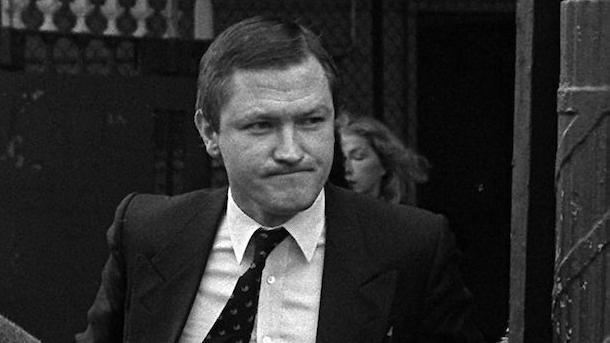
- Published
Pat Finucane's death was one of the most controversial killings during the Troubles - the decades of conflict in Northern Ireland that claimed the lives of more than 3,000 people.
The high-profile solicitor was shot dead by loyalist paramilitaries from the Ulster Defence Association (UDA) in 1989.
His family has fought a long campaign, involving numerous legal actions, in a bid to have the UK government fulfil a commitment given 20 years ago to hold an inquiry.
Several examinations of the case found the security services colluded in his murder.
On Wednesday, the Northern Ireland secretary announced that an independent public inquiry would proceed.
A murder with 'collusion at its heart'
- Published30 November 2020
Pat Finucane murder to be examined in public inquiry
- Published11 September 2024
Who was Pat Finucane?
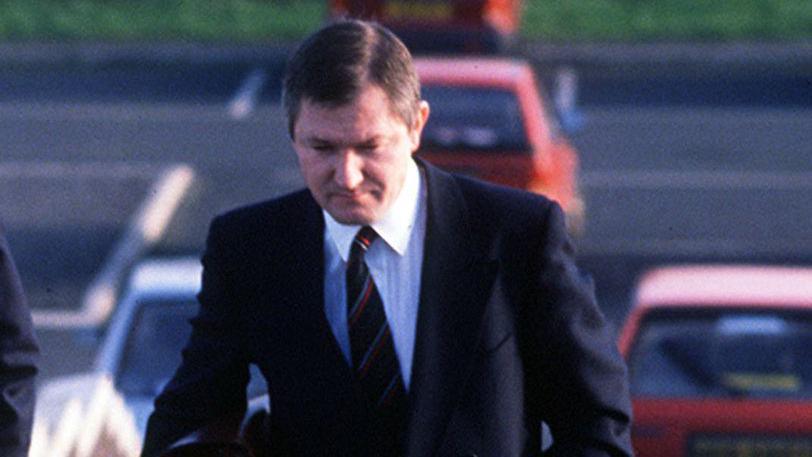
Pat Finucane was a high-profile solicitor who lived and worked in Belfast.
In his role as a defence solicitor, he had represented both loyalists and republicans, including prominent members of the Irish Republican Army (IRA).
How was he killed?
Mr Finucane was shot in front of his wife and three children at their family home in north Belfast on 12 February 1989.
The family were eating a Sunday meal at their kitchen table when loyalist paramilitaries used a sledgehammer to break into their house.
They opened fire, shooting the solicitor 14 times. He died at the scene.
One of Mr Finucane's sons, Michael, later wrote that the image of the attack had been seared into his mind.
"The thing I remember most vividly is the noise; the reports of each bullet reverberating in the kitchen, how my grip on my younger brother and sister tightened with every shot," he recalled
The Ulster Freedom Fighters (UFF), a cover name for the UDA, later admitted carrying out the murder.
They claimed they had killed "Pat Finucane, the IRA officer".
The solicitor's family have always vehemently rejected any claim Mr Finucane had been a member of the IRA and have been supported in this by the police.
Why is the case so controversial?
In the course of his work, Mr Finucane had represented a number of high-profile IRA prisoners, some of whom had taken part in hunger strikes at the Maze Prison.
The year before he died he had defended former IRA hunger striker Pat McGeown, who had been charged with helping to organise the murder of two Army corporals who drove into an IRA funeral cortege in west Belfast.
The mourners dragged the corporals from their car and took them to waste ground where they were shot dead by IRA gunmen.
The abduction was captured on TV and remains among the most disturbing images of the Troubles.
Mr Finucane succeeded in getting the charges against his client dropped, but a double agent passed a photograph of the solicitor, taken outside the court, to his killers.
The double agent was Brian Nelson, who compiled information on potential targets for the UDA, while at the same time working for Army intelligence.
Has anyone been convicted of the murder?
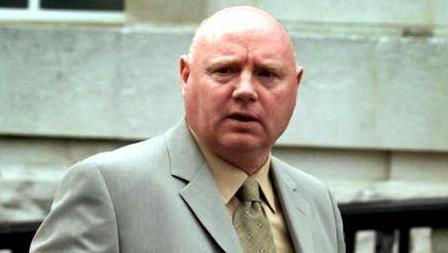
Former Royal Ulster Constabulary Special Branch agent William Stobie admitted supplying a weapon used in the killing, but denied murder
In June 1999 a former UDA quartermaster and ex-Royal Ulster Constabulary (RUC) Special Branch agent, William Stobie, was charged with murdering Mr Finucane.
Mr Stobie admitted supplying a weapon used in the killing, but denied murder.
Just over two years later, the case against him collapsed due to the refusal of a key witness to give evidence.
Mr Stobie walked free from court but within weeks was shot dead outside his home by loyalist gunmen.
In May 2003 the loyalist Ken Barrett was arrested and charged with the murder of Mr Finucane.
Barrett, who drove the getaway car, later confessed and was sentenced to 22 years' imprisonment in September 2004.
He was freed two years later under the terms of the Good Friday Agreement.
What was the de Silva review?
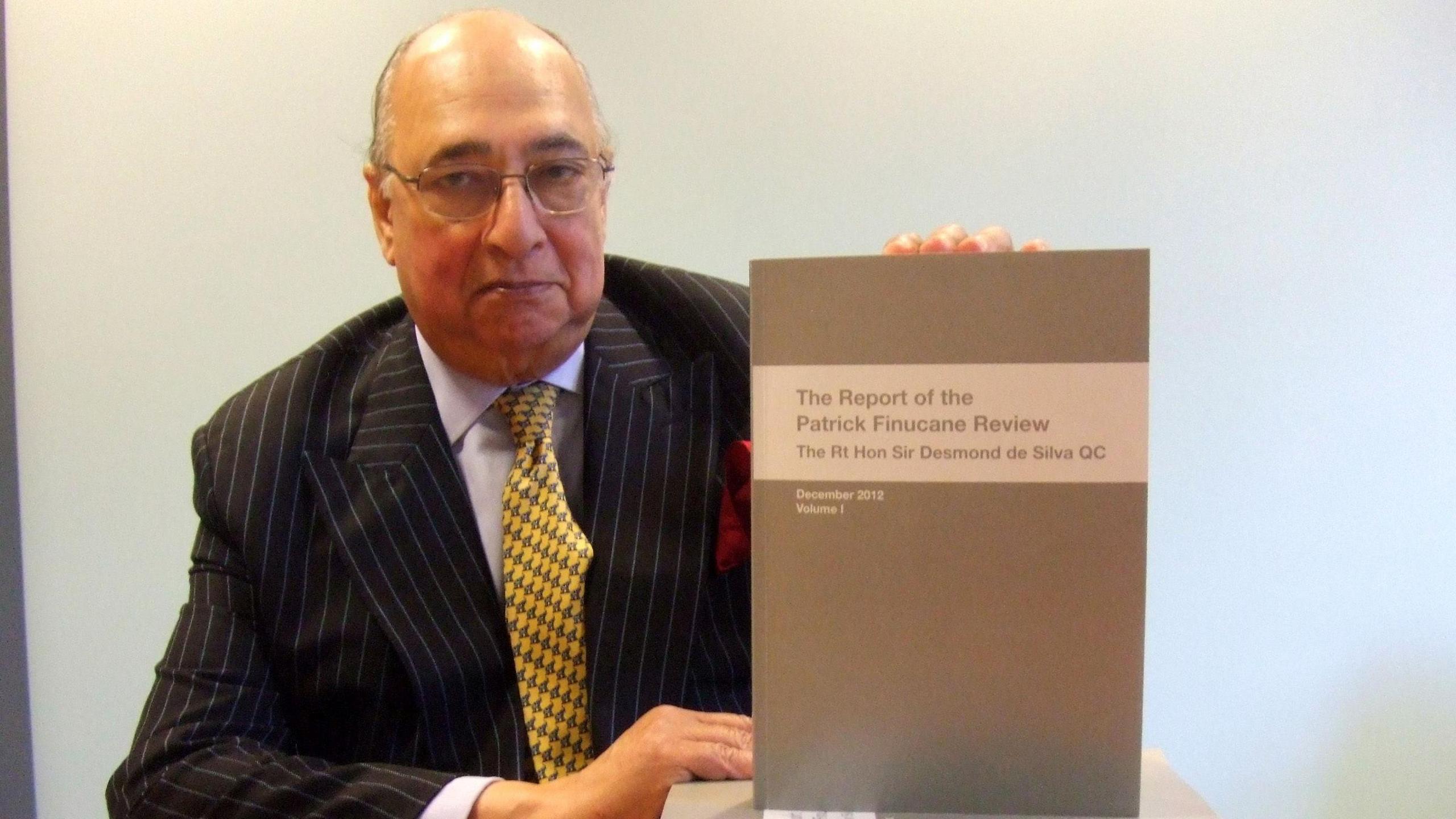
Sir Desmond de Silva's report in 2012 confirmed that agents of the state were involved
Former United Nations war crimes prosecutor Sir Desmond de Silva was asked by the government to carry out a review of all the existing documentation on Mr Finucane's murder.
His report in 2012 confirmed agents of the state were involved in the 1989 killing and that it should have been prevented.
It found RUC officers proposed Mr Finucane be killed, said they passed information to his killers, failed to stop the attack and then obstructed the murder investigation.
It also found that an Army intelligence unit, the Force Reaction Unit, bore a degree of responsibility because one of its agents, Nelson, was involved in selecting targets.
Sir Desmond found that there was "no over-arching state conspiracy", but his report prompted the prime minister at the time, David Cameron, to apologise for "frankly shocking levels of collusion".
The Finucanes argued that the report left many questions unanswered.
The Finucane family
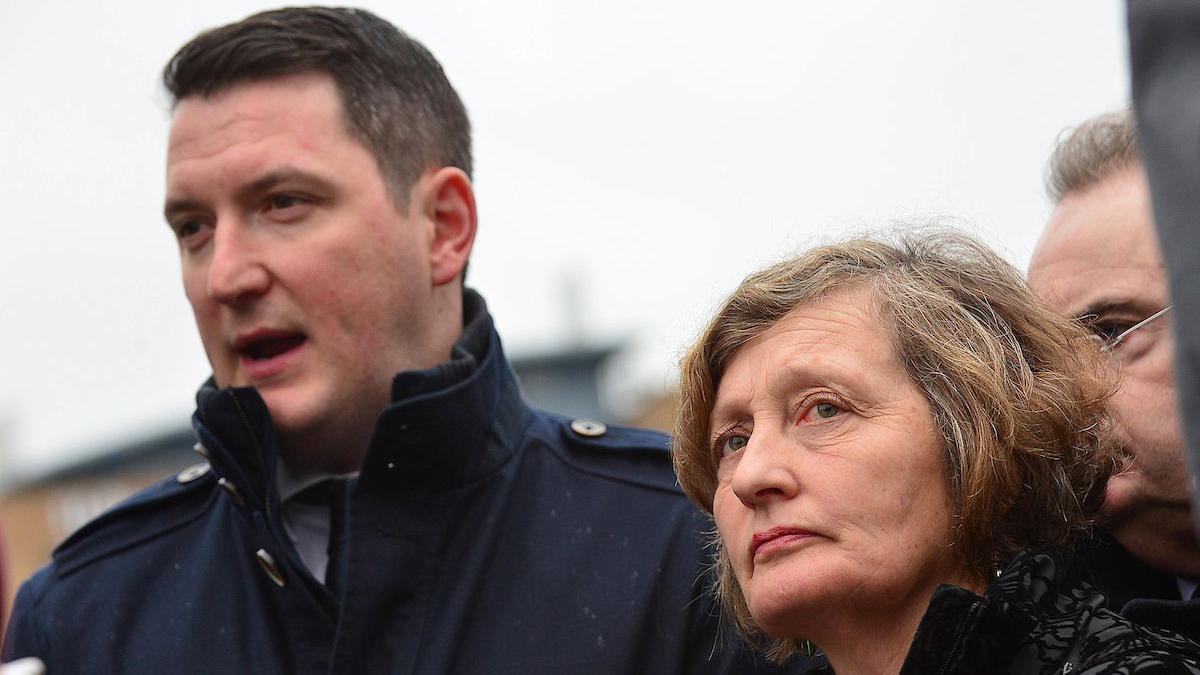
Mr Finucane's widow Geraldine and their son John, now a Sinn Féin MP, have long campaigned for a full public inquiry
The Finucane family have campaigned for a full public inquiry into the murder for many years and have repeatedly insisted that they will not accept anything less.
Mr Finucane's son John became a Sinn Féin councillor and lord mayor of Belfast and has served as MP for Belfast North since 2019.
The family believes a public inquiry, where the veracity of documents and witnesses can be tested under cross-examination, is the best way of getting to the truth about the extent of security force collusion and exactly who knew what.
Public inquiries are set up to uncover the truth following scandals or perceived injustices.
The test that must be satisfied in order to hold an inquiry is that it is of "public concern".
While often chaired by a judge, a public inquiry is not a court of law and cannot determine liability.
In September 2019, the Finucane family launched legal action in an attempt to force the government to hold a public inquiry.
The Northern Ireland secretary at that time, Brandon Lewis, ruled out a public inquiry into state collusion in the killing in November 2020.
However, in April 2021 Mr Finucane's widow Geraldine was granted leave to seek a judicial review of the decision.
The new Labour government faced a decision over continuing calls by the family to launch an inquiry.
Speaking in the Commons on 11 September 2024, Northern Ireland Secretary Hilary Benn said the "exceptional reason" of outstanding and unfulfilled commitments by previous UK governments to establish a public inquiry meant it should proceed.
Related topics
- Published15 April 2021
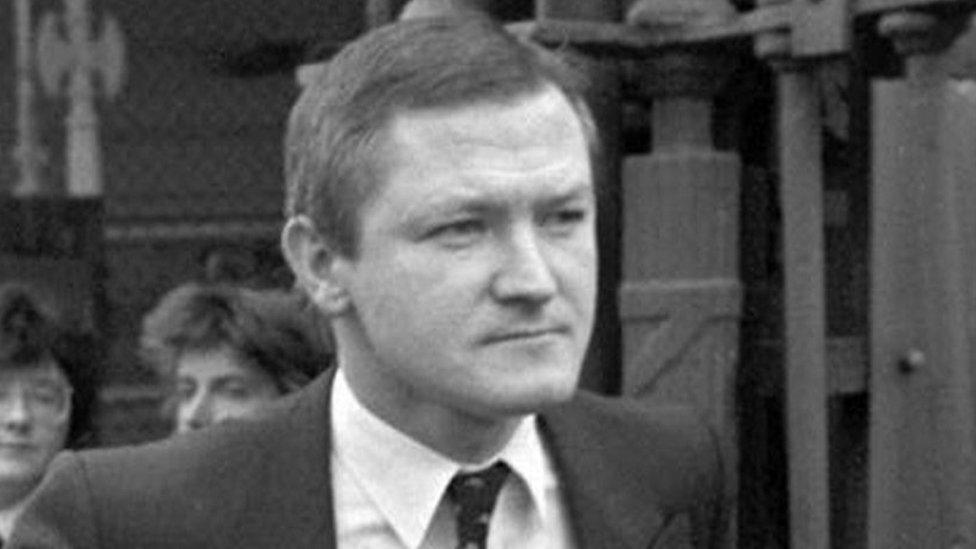
- Published30 November 2020
